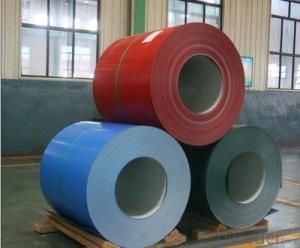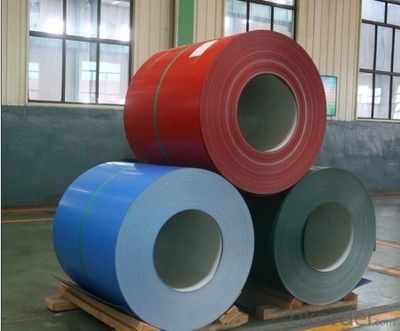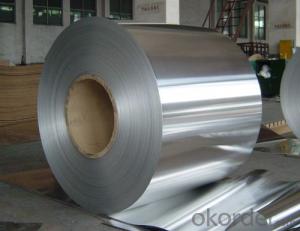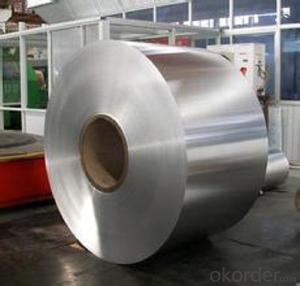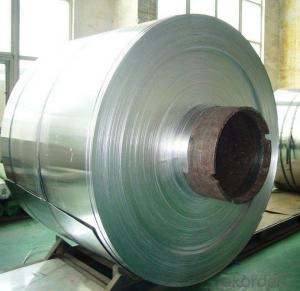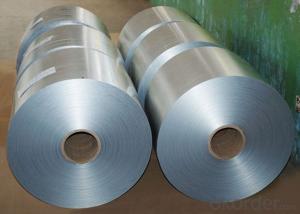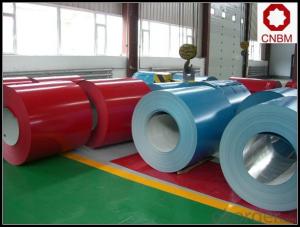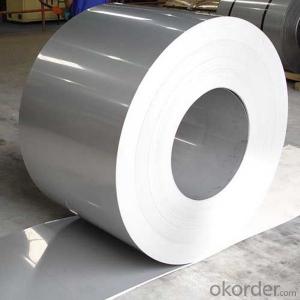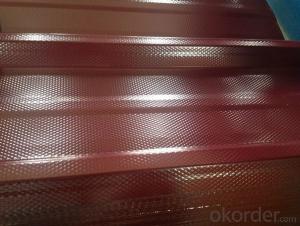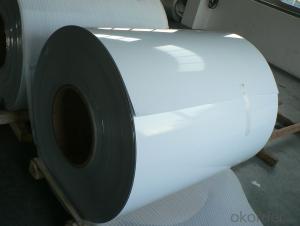Rona Aluminum Coil - Coated Aluminum Coils 3003 H14 for Metal Walls
- Loading Port:
- Shanghai
- Payment Terms:
- TT OR LC
- Min Order Qty:
- 5 m.t.
- Supply Capability:
- 10000 m.t./month
OKorder Service Pledge
OKorder Financial Service
You Might Also Like
Specification
1. Structure of Coated Aluminium Coils 3003 H14 for Metal Walls Description
• Product: Aluminim coils
• Application:
corrugated roofs, outer walls, ovens, electrically controlled cabinets.
household appliances, transportation, base plate, color coating.
industrial freezers in the residential and industrial buildings.
refrigerator backplane, gas stove, air conditioner, microwave, LCD border.
• Advantage: Full production line with all kinds of coils supply
2. Main Features of the Coated Aluminium Coils 3003 H14 for Metal Walls
• Our goods quality is top, the surface is smooth, and every steel coil
• No Joint, No Bends, no spots, no roller marks.
• MTC will be provided with goods, third part inspection is acceptable, for example, SGS, BV. Etc
3. Coated Aluminium Coils 3003 H14 for Metal Walls Images
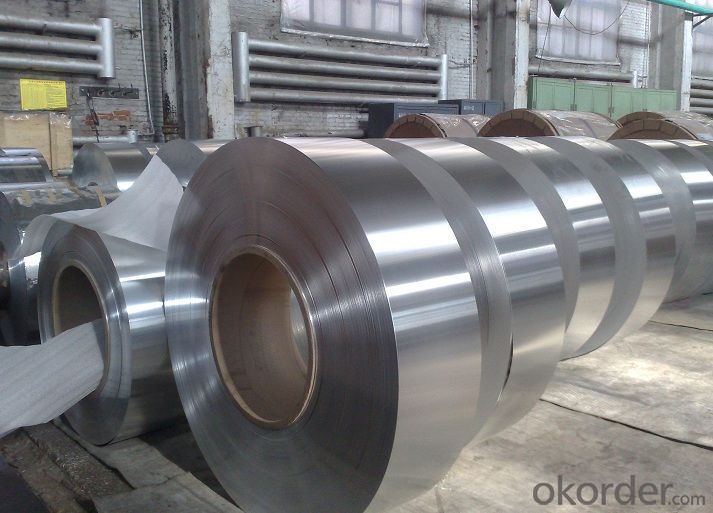
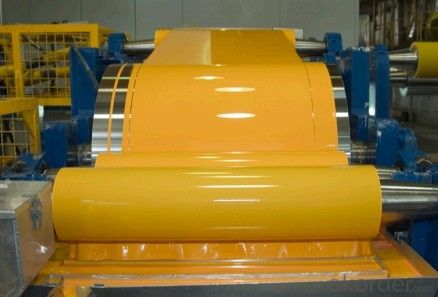
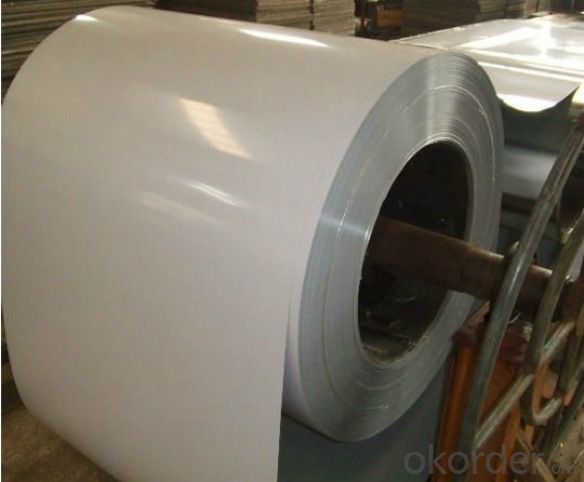
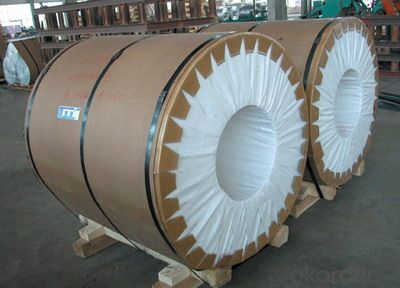
4. Coated Aluminium Coils 3003 H14 for Metal Walls Specification
Alloy | AA1050/1100/3003/3005/3105/5005/5052 etc |
Thickness | 0.03mm—4.0mm |
Width | 10mm—1600mm |
Coating | PVDF, PE |
Coatingthickness | Usually16-25 micron, could be 33-40 micron |
Color | According to Ral |
Standard | ASTM-B 209 GB/3008-2006 |
Usage/ApplicationsCoated Aluminum Coil/Sheet | Constructionand decoration, electronic appliances, lighting decoration, air-condition airpipe, sandwich panels and drainage, etc |
5.FAQ of Coated Aluminium Coils 3003 H14 for Metal Walls
We have organized several common questions for our clients,may help you sincerely:
① How about your company?
A world class manufacturer & supplier of aluminum coil and alloy blanks. Aluminum production base is comprised of 18 aluminum annealers, 10 coil and foil mills, 4 continuous production lines, 2 hot rolling production line and 3 prepainted lines.
Export 5000 tons per month to Asia, America and Middle East. Always do the best for our clients.
②Can you guarantee the quality of the products?
We are responsible for the quality of materials to get a long-term cooperation with clients in a reasonable period of time and we are glad to arrange and coordinate any third party inspection for you.
③What is the delivery time after purchase?
35 day after receiving client’s deposit or correct LC
- Q: G'day guys, I'm wanting to get the tinnie out but im not looking on spending to much on oars, Aluminum ones are quite cheap i can pick some up for $50, but i was just wondering if there any good? anyone had good or bad experience with them? and would it just be worth forking out extra for wooden ones?
- well on a grade 8 camp we went canoeing and had to use aluminium oars and got absolutely cover in grey stuff, like my hands, arms, legs, face. and it made me itchy. it could probably be even cheaper if you made your own wooden ones, like following instructions and everything. but for cheap oars check OKorder
- Q: Aluminum metal reacts with hydrochloric acid, HCl, to form hydrogen gas (H2) and a solution of aluminum chloride. Write and balance the equation. Can someone help I just dont get this Al2 + 6HCl → 3H2 + 2AlCl3 Al2 + 2HCl → H2 + 2AlCl 2Al + 6HCl → 3H2 + 2AlCl3 Al + 2HCl → H2 + AlCl2 6Al + 2HCl → H2 + 2Al3Cl
- Aluminum And Hydrochloric Acid
- Q: Can aluminum coils be used in the production of cryogenic storage tanks?
- Yes, aluminum coils can be used in the production of cryogenic storage tanks. Aluminum is a suitable material for cryogenic applications due to its low density, high thermal conductivity, and excellent corrosion resistance. These properties make it ideal for storing and transporting cryogenic liquids such as liquid nitrogen, oxygen, and argon. Aluminum coils can be used to fabricate the inner shell of the storage tank, providing a lightweight and durable solution. Additionally, aluminum is easily formable, allowing for the creation of complex tank shapes and designs. However, it is important to note that aluminum has a higher coefficient of thermal expansion compared to other materials like stainless steel, so proper design considerations must be taken to accommodate for thermal contraction and expansion during cryogenic operations.
- Q: What are the advantages of using aluminum coils in HVAC systems?
- There are several advantages of using aluminum coils in HVAC systems. Firstly, aluminum coils are significantly lighter compared to traditional copper coils. This makes them easier to handle and install, reducing the overall labor and transportation costs. Additionally, the lighter weight of aluminum coils puts less stress on the HVAC system, resulting in less wear and tear over time. Another advantage of aluminum coils is their superior resistance to corrosion. Aluminum is naturally resistant to rust and oxidation, which can prolong the lifespan of the coils and enhance the overall durability of the HVAC system. This resistance to corrosion also helps maintain the efficiency of the system, as the coils remain clean and free from clogs caused by debris buildup. Moreover, aluminum coils have excellent heat transfer properties. They can efficiently absorb and release heat, allowing the HVAC system to cool or heat the air more effectively. This improved heat transfer efficiency can result in energy savings and reduced operating costs, as the system requires less energy to achieve the desired temperature. Furthermore, aluminum coils are more environmentally friendly compared to copper coils. Aluminum is a highly recyclable material, and using aluminum coils can contribute to reducing waste and conserving resources. Additionally, the process of manufacturing aluminum coils requires less energy and produces fewer greenhouse gas emissions, making it a more sustainable choice for HVAC systems. In summary, the advantages of using aluminum coils in HVAC systems include lighter weight, corrosion resistance, superior heat transfer properties, energy efficiency, and environmental sustainability. These benefits make aluminum coils a preferred choice for many HVAC professionals and homeowners alike.
- Q: What are the maximum operating temperatures for aluminum coils?
- The maximum operating temperatures for aluminum coils typically range from 300 to 400 degrees Fahrenheit, depending on the specific grade and alloy of aluminum being used.
- Q: What is the expected lead time for manufacturing aluminum coils?
- The lead time for manufacturing aluminum coils can vary depending on several factors, such as the complexity of the coil design, the size and quantity of the coils being manufactured, the availability of raw materials, and the production capacity of the manufacturing facility. Generally, the lead time for aluminum coil manufacturing can range from a few weeks to several months. If the coils have a simple design and readily available raw materials, the lead time is usually shorter. However, if the coils have a complex design or require specialized materials, the lead time may be longer. Additionally, the production capacity of the manufacturing facility is a significant factor in determining the lead time. Facilities with higher production capacities can manufacture and deliver aluminum coils more quickly than those with lower capacities. To obtain an accurate estimate of the expected lead time, it is important to consult with the specific manufacturer. They will assess the project's specific requirements and provide a timeframe that aligns with those requirements.
- Q: Aluminium forms layer of aluminium oxide when exposed to air. This prevents further reaction.However, isn't aluminium oxide an amphoteric oxide that can react with both acids and alkalis?
- Like hell, it can.
- Q: Can aluminum coils be anodized for enhanced durability?
- Yes, aluminum coils can be anodized to enhance their durability. The anodizing process creates an oxide layer on the surface of the aluminum, making it more resistant to corrosion, wear, and abrasion. This improves the overall lifespan and performance of the coils.
- Q: Normal aluminum like you find in the ground, not the man made stuff
- Not at visible wavelengths at room temperature.
- Q: How can you tell the difference between aluminum and other non-magnetic metals, such as what I've heard called, pot-metal?
- Well there's many ways to do this but I would think the easiest way would be to weigh the two metals and aluminum will be lighter.
Send your message to us
Rona Aluminum Coil - Coated Aluminum Coils 3003 H14 for Metal Walls
- Loading Port:
- Shanghai
- Payment Terms:
- TT OR LC
- Min Order Qty:
- 5 m.t.
- Supply Capability:
- 10000 m.t./month
OKorder Service Pledge
OKorder Financial Service
Similar products
Hot products
Hot Searches
Related keywords
